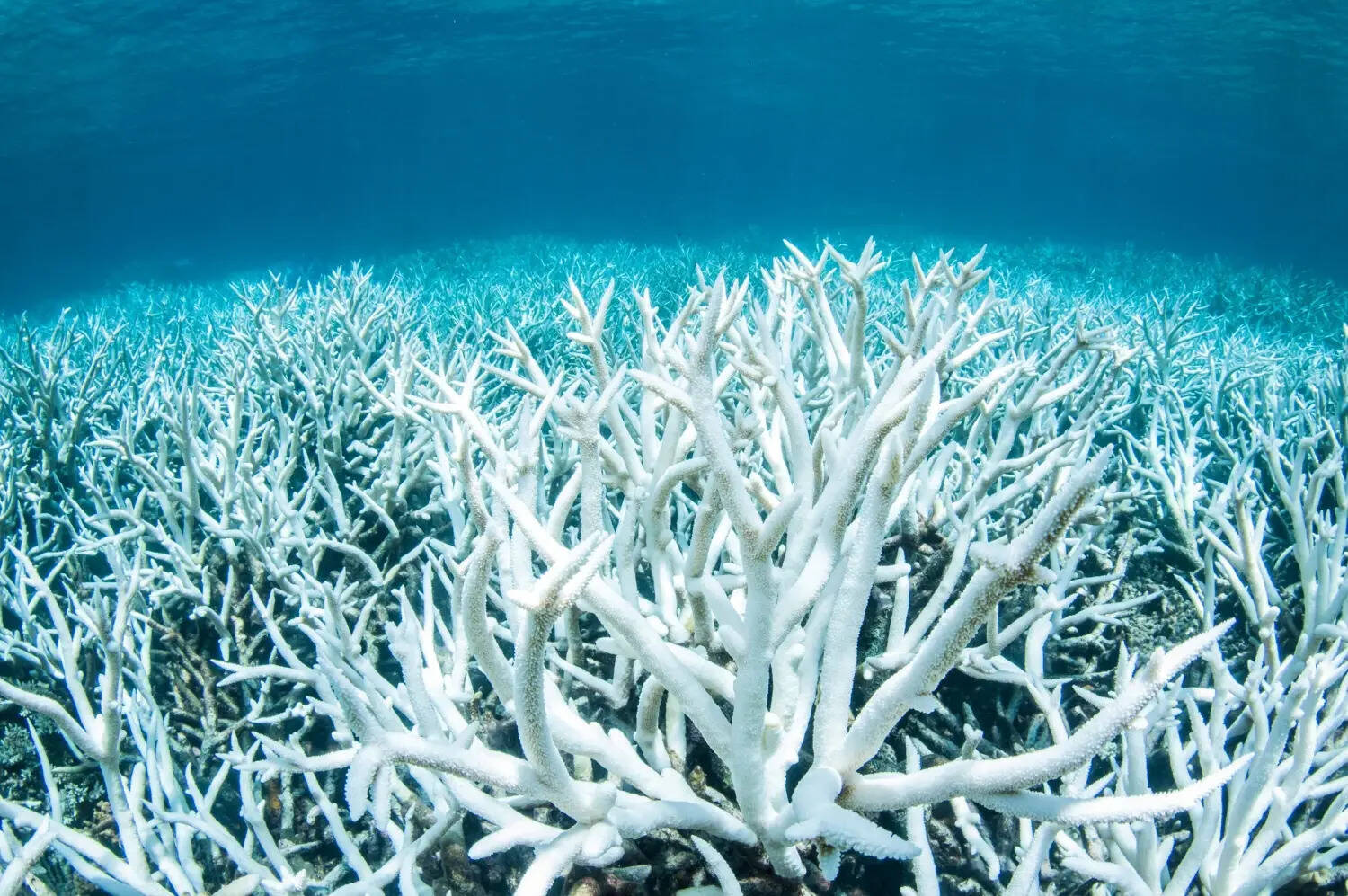
Coral bleaching is a serious issue affecting our oceans. When corals lose their vibrant colors, it’s a sign they’re stressed, usually due to changes in temperature, light, or nutrients. Why does coral bleaching matter? It’s a clear indicator of the health of marine ecosystems. Healthy corals support diverse marine life, providing food and shelter for many species. When corals bleach, they become more susceptible to disease and death, which can lead to the collapse of entire reef ecosystems. This not only impacts marine life but also affects human communities relying on reefs for food, tourism, and coastal protection. Understanding coral bleaching helps us protect these vital underwater habitats.
What is Coral Bleaching?
Coral bleaching is a phenomenon that affects coral reefs worldwide. When corals experience stress due to changes in conditions such as temperature, light, or nutrients, they expel the symbiotic algae living in their tissues, causing them to turn completely white. Here are some fascinating facts about coral bleaching.
-
Coral bleaching occurs when corals expel the algae (zooxanthellae) that live in their tissues, causing the coral to turn white.
-
The primary cause of coral bleaching is rising sea temperatures, often linked to climate change.
-
Bleached corals are not dead, but they are under more stress and are at a higher risk of mortality.
Causes of Coral Bleaching
Understanding the causes behind coral bleaching can help in finding ways to mitigate its effects. Various factors contribute to this phenomenon.
-
Increased sea surface temperatures are the most common cause of coral bleaching.
-
Pollution from agricultural runoff and sewage can also lead to coral bleaching.
-
Overexposure to sunlight, especially during low tides, can cause corals to bleach.
-
Ocean acidification, resulting from increased CO2 levels, weakens corals and makes them more susceptible to bleaching.
Effects of Coral Bleaching
The impact of coral bleaching extends beyond the corals themselves. It affects entire marine ecosystems and human communities.
-
Coral bleaching reduces the biodiversity of coral reefs, as many marine species depend on healthy corals for habitat.
-
Bleached corals have reduced reproductive capabilities, affecting the regeneration of coral populations.
-
Coral reefs provide coastal protection by reducing wave energy, and their degradation can lead to increased coastal erosion.
-
The loss of coral reefs can negatively impact local economies that rely on tourism and fishing.
Global Coral Bleaching Events
Coral bleaching is not a localized issue; it has occurred on a global scale, affecting reefs worldwide.
-
The first global coral bleaching event was recorded in 1998, during a strong El Niño event.
-
Another significant global bleaching event occurred in 2010, affecting reefs in the Caribbean, Indian Ocean, and Southeast Asia.
-
The most severe global bleaching event to date happened between 2014 and 2017, impacting over 70% of the world's coral reefs.
Coral Bleaching and Climate Change
Climate change plays a significant role in the frequency and severity of coral bleaching events. The connection between the two is undeniable.
-
Rising global temperatures due to climate change are the primary driver of increased coral bleaching events.
-
Climate models predict that if current trends continue, annual severe bleaching will occur on 99% of the world's reefs by the end of the century.
-
Efforts to reduce greenhouse gas emissions can help mitigate the impact of climate change on coral reefs.
Efforts to Combat Coral Bleaching
Various initiatives and strategies are being implemented to combat coral bleaching and protect coral reefs.
-
Marine protected areas (MPAs) can help reduce local stressors on coral reefs, giving them a better chance to recover from bleaching events.
-
Coral restoration projects involve growing corals in nurseries and transplanting them to degraded reefs.
-
Researchers are exploring the potential of breeding heat-resistant coral species to withstand higher temperatures.
-
Reducing pollution and improving water quality can help alleviate some of the stressors that contribute to coral bleaching.
The Importance of Coral Reefs
Coral reefs are vital to marine life and human communities. Their importance cannot be overstated.
-
Coral reefs support over 25% of all marine species, despite covering less than 1% of the ocean floor.
-
They provide food and livelihood for millions of people worldwide.
-
Coral reefs are a source of new medicines, including treatments for cancer and other diseases.
-
Healthy coral reefs contribute to the overall health of the ocean, which is essential for the planet's climate regulation.
-
Protecting coral reefs is crucial for maintaining biodiversity and the well-being of human communities that depend on them.
The Final Word on Coral Bleaching
Coral bleaching is a serious issue affecting our oceans. Rising sea temperatures, pollution, and overfishing contribute to this phenomenon. Healthy coral reefs support marine life, protect coastlines, and benefit local economies. When corals bleach, they lose their vibrant colors and essential algae, making them more vulnerable to disease and death.
Efforts to combat coral bleaching include reducing carbon emissions, protecting marine areas, and promoting sustainable fishing practices. Everyone can help by reducing their carbon footprint, supporting conservation efforts, and spreading awareness about the importance of coral reefs.
Understanding coral bleaching and its impacts is crucial for preserving these vital ecosystems. By taking action now, we can help ensure that future generations will enjoy the beauty and benefits of healthy coral reefs. Let's work together to protect our oceans and the incredible life they sustain.
Was this page helpful?
Our commitment to delivering trustworthy and engaging content is at the heart of what we do. Each fact on our site is contributed by real users like you, bringing a wealth of diverse insights and information. To ensure the highest standards of accuracy and reliability, our dedicated editors meticulously review each submission. This process guarantees that the facts we share are not only fascinating but also credible. Trust in our commitment to quality and authenticity as you explore and learn with us.


